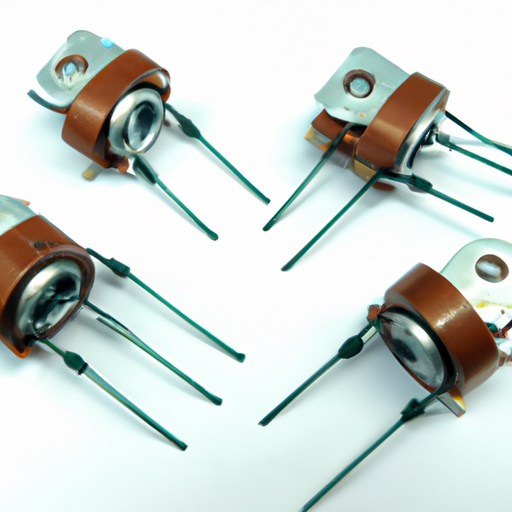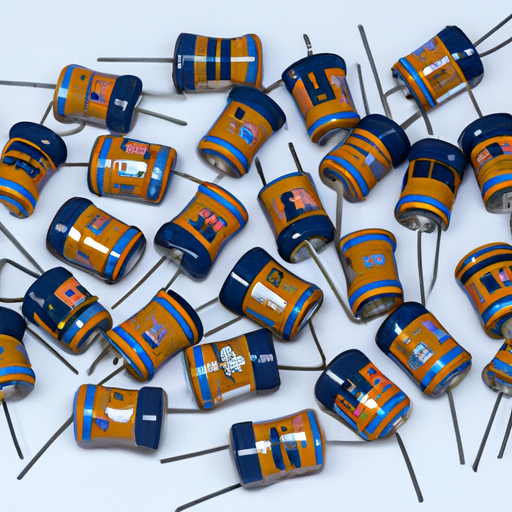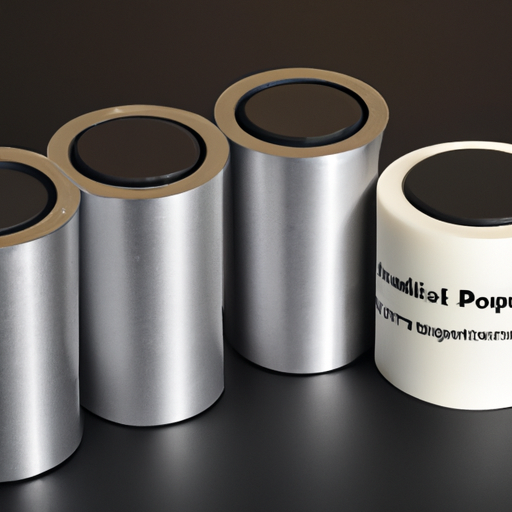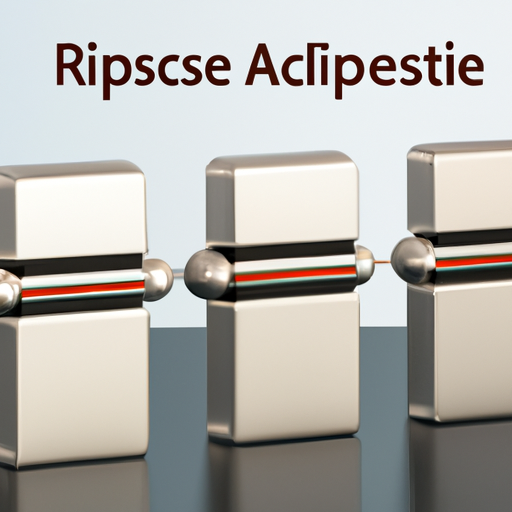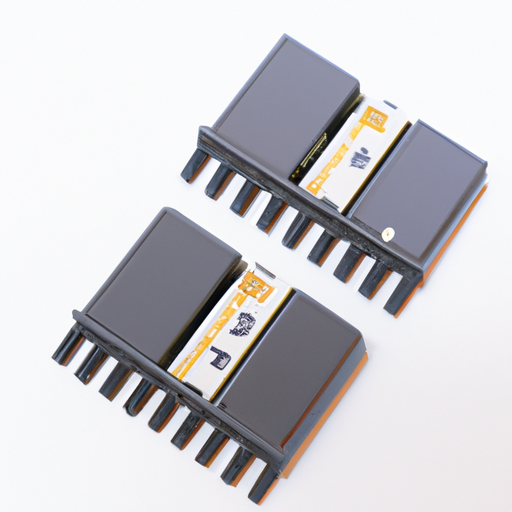What is the role of motor capacitor products in practical applications?
The Role of Motor Capacitor Products in Practical Applications
I. Introduction
Motor capacitors are essential components in various electrical systems, particularly in the operation of electric motors. These devices store and release electrical energy, playing a crucial role in enhancing motor performance and efficiency. In this article, we will explore the significance of motor capacitors, their types, functions, and practical applications across different sectors. By understanding the role of motor capacitors, we can appreciate their impact on modern technology and energy efficiency.
II. Understanding Motor Capacitors
A. What are Motor Capacitors?
Motor capacitors are electrical devices that store energy in an electric field, allowing for the smooth operation of electric motors. They are primarily used in single-phase and three-phase motors to improve performance and efficiency.
1. Types of Motor Capacitors
Start Capacitors: These capacitors provide a boost of energy to start the motor. They are typically used in single-phase motors, where they help create the necessary starting torque.
Run Capacitors: These capacitors remain in the circuit during the motor's operation, improving efficiency and performance by providing a continuous phase shift.
Dual Capacitors: These capacitors combine the functions of both start and run capacitors in a single unit, making them versatile for various applications.
2. Basic Working Principles
Motor capacitors work by creating a phase shift in the electrical current supplied to the motor. This phase shift is essential for generating the magnetic fields required for motor operation. By storing and releasing energy, capacitors help to smooth out the electrical supply, reducing fluctuations that can affect motor performance.
B. Key Specifications and Ratings
When selecting motor capacitors, several key specifications must be considered:
1. **Capacitance Value**: Measured in microfarads (µF), this value indicates the capacitor's ability to store electrical energy. The appropriate capacitance value is crucial for optimal motor performance.
2. **Voltage Rating**: This rating indicates the maximum voltage the capacitor can handle without failure. It is essential to choose a capacitor with a voltage rating that exceeds the motor's operating voltage.
3. **Temperature Rating**: Capacitors are rated for specific temperature ranges. Operating outside these ranges can lead to premature failure.
4. **Tolerance**: This specification indicates the allowable variation in capacitance value. A lower tolerance means a more precise capacitor, which can be critical in certain applications.
III. The Role of Motor Capacitors in Electrical Motors
A. Function in Single-Phase Motors
In single-phase motors, motor capacitors play a vital role in enhancing starting torque and creating a phase shift.
1. **Starting Torque Enhancement**: Start capacitors provide an initial surge of energy, allowing the motor to overcome inertia and start smoothly. This is particularly important in applications where the motor must start under load.
2. **Phase Shift Creation**: By creating a phase shift, run capacitors help maintain a continuous rotation of the motor, improving its efficiency and performance.
B. Function in Three-Phase Motors
In three-phase motors, motor capacitors are used primarily for power factor correction and efficiency improvement.
1. **Power Factor Correction**: Capacitors help to balance the load on the electrical system, reducing reactive power and improving the overall power factor. This leads to lower energy costs and improved system stability.
2. **Efficiency Improvement**: By optimizing the power factor, motor capacitors enhance the efficiency of three-phase motors, allowing them to operate more effectively and consume less energy.
C. Impact on Motor Performance
Motor capacitors significantly impact motor performance in several ways:
1. **Speed Regulation**: Capacitors help maintain consistent motor speed, even under varying load conditions. This is crucial for applications requiring precise speed control.
2. **Load Handling Capabilities**: By improving starting torque and efficiency, motor capacitors enable motors to handle larger loads without overheating or failing.
IV. Practical Applications of Motor Capacitors
Motor capacitors are used in a wide range of practical applications across various sectors:
A. Residential Applications
1. **Air Conditioning Units**: Motor capacitors are essential for the efficient operation of air conditioning compressors, ensuring they start and run smoothly.
2. **Refrigerators**: In refrigerators, motor capacitors help maintain consistent compressor operation, improving energy efficiency and cooling performance.
3. **Ceiling Fans**: Capacitors in ceiling fans enhance motor performance, allowing for quiet and efficient operation.
B. Commercial Applications
1. **HVAC Systems**: In commercial heating, ventilation, and air conditioning systems, motor capacitors improve the efficiency and reliability of various components.
2. **Pumps and Compressors**: Motor capacitors are critical in ensuring that pumps and compressors operate effectively, particularly in industrial settings.
3. **Industrial Machinery**: Many types of industrial machinery rely on motor capacitors for optimal performance, from conveyor systems to manufacturing equipment.
C. Automotive Applications
1. **Electric Vehicle Motors**: As electric vehicles become more prevalent, motor capacitors play a crucial role in enhancing the performance of electric motors.
2. **Starter Motors**: In traditional combustion engine vehicles, motor capacitors help starter motors provide the necessary torque to start the engine.
D. Specialty Applications
1. **Robotics**: In robotics, motor capacitors are used to ensure precise control and efficient operation of motors in robotic arms and other systems.
2. **Electric Bicycles and Scooters**: Motor capacitors enhance the performance of electric bicycles and scooters, providing smooth acceleration and efficient operation.
V. Benefits of Using Motor Capacitors
The use of motor capacitors offers several benefits:
A. Improved Energy Efficiency
By optimizing motor performance and power factor, motor capacitors contribute to significant energy savings, reducing operational costs.
B. Enhanced Motor Lifespan
Properly functioning motor capacitors help prevent overheating and other issues, extending the lifespan of electric motors.
C. Reduced Operational Costs
With improved efficiency and reduced energy consumption, businesses can lower their operational costs, making motor capacitors a cost-effective solution.
D. Increased Reliability and Performance
Motor capacitors enhance the reliability and performance of electric motors, ensuring they operate smoothly and efficiently in various applications.
VI. Challenges and Considerations
While motor capacitors offer numerous benefits, there are challenges and considerations to keep in mind:
A. Selection Criteria for Motor Capacitors
1. **Matching Capacitance and Voltage Ratings**: It is crucial to select capacitors that match the motor's specifications to ensure optimal performance.
2. **Environmental Considerations**: Capacitors must be chosen based on the environmental conditions in which they will operate, including temperature and humidity.
B. Common Issues and Troubleshooting
1. **Capacitor Failure Signs**: Signs of capacitor failure include motor overheating, unusual noises, and failure to start. Regular maintenance and monitoring can help identify these issues early.
2. **Replacement and Maintenance Tips**: Regularly inspecting and replacing capacitors as needed can prevent motor failure and ensure reliable operation.
VII. Future Trends in Motor Capacitor Technology
As technology advances, several trends are emerging in motor capacitor technology:
A. Advancements in Materials and Design
New materials and designs are being developed to improve the efficiency and performance of motor capacitors, making them more reliable and durable.
B. Integration with Smart Technologies
The integration of motor capacitors with smart technologies allows for better monitoring and control of motor performance, leading to enhanced efficiency and reliability.
C. Environmental Considerations and Sustainability
As sustainability becomes increasingly important, manufacturers are focusing on developing environmentally friendly motor capacitors that minimize waste and energy consumption.
VIII. Conclusion
Motor capacitors play a vital role in the operation and efficiency of electric motors across various applications. From enhancing starting torque to improving energy efficiency, these components are essential for modern electrical systems. As technology continues to evolve, the importance of motor capacitors will only grow, making it crucial for engineers, technicians, and consumers to understand their role and benefits. By exploring and understanding motor capacitors, we can appreciate their impact on energy efficiency and the performance of electric motors in our daily lives.
IX. References
A comprehensive list of academic papers, articles, and resources for further reading on motor capacitors and their applications can be provided upon request.

